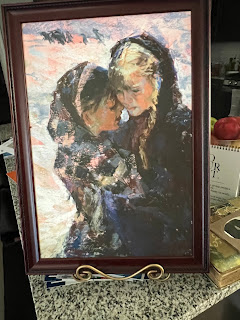Roberts, David, Devil’s Gate: Brigham Young and the Great Mormon Handcart Tragedy, 2008, Simon and Schuster, New York.
This book I cannot recommend. It advertises itself as a book of the Mormon handcarts, but spends most of its pages as an antiMormon book. The contention of the book is that Brigham Young was a man set on greed and power, who lied freely to absolve himself of any guilt with regards to the handcarts. Brigham Young expressed his desire to build up the Kingdom of God as his motivation for helping the pioneers cross the plains, and the use of handcarts allowed them to help more people than otherwise. That true is an economic question, but where you could help a couple thousand, instead of a few hundred, that was Brigham’s motivation, no greed, not power, even though they did hope people would come to Utah to help build Zion.
Roberts does not seem to have any concept of spiritual motives. The idea of building Zion I imagine is very foreign to his nature, and he had difficulty accepting other motivations. He gives himself away in the acknowledgments in which he thanks a Mormon researcher, “Ardis realized early on that my conclusions about the handcart tragedy, nineteenth century Mormon history, and Brigham Young himself would be seriously at odds with hers.” I think Roberts had drawn his conclusions before he began investigating, and minimized anything which was contrary to this conclusion, and played up anything negative.
This is evidenced by his handling of the pioneers themselves and their journals. Mormon diarist who were positive, or write anything upbeat about the handcarts were obviously “fanatics.” He uses sarcasm against some of those who suffer, based on their earlier being for the handcart plan. I personally had difficulty reading the book, until I just took it this is how someone who is a “jerk” would write the story. (I actually thought something stronger.) As an example he quotes from John Jaques rarely and he was the Martin Company historian. He does use his reminiscences because the “fanaticism was mellowed out of him.” (p 23) His major sources of information with regards to the Willie company is people who left the church and wrote derogatory accounts.
The author’s coup de grace is a letter which was written by William Willard to Heber Kimball which announced the arrival of the Thornton to New York, and that it was expected in Iowa in June. The letter was stamped received in Salt Lake July 30, 1856. The author argues that this letter proves Brigham’s lying when he said he did not know of handcarts on the plains until Franklin Richards brought word the first part of October. In my research Brigham never said he didn’t know there were companies in the East, he had assumed they had wintered in the East however. This makes sense as the Church had cautioned against any company leaving the Florence after August 1. Both the Willie and Martin Companies left Florence after August 1, (P.A.M. Taylor in Expectations Westward, also a nonMormon author but not one with a point to prove.) Roberts spends another part of the book saying there was no date set after which immigrants should winter in the East.
The author does let the pioneer’s stories come through from time to time, and in those places the book is very moving. However some of the “background” stuff he puts in the book seems to over shadow this. The author quotes, and talks about anything negative ever said about Joseph Smith or Brigham Young. Some of his sources include Bill Hickman, (excommunicated from the church and saying anything negative he could think of about Brigham Young so as to beat a murder rap against himself. Authorities went along with this but then realized, too late to convict Hickman, that there wasn’t a case against Brigham Young) Fawn Brodie, (whose work has already been discredited as she printed every rumor about Joseph Smith she could find) and Will Bagley (who carries a great deal of anger against the church for whatever reason who knows.)
The strangest chapter is the author’s personal experience, “The Mormon Mayflower.” The author went to Mormon Handcart Visitors Centers and asks, “Who’s to blame.” The question seems so inappropriate, especially when the author wouldn’t accept anyone’s answer anyway, as the only right answer to him was “Brigham Young.” Sometimes bad things happen. There is no guarantee in life. He challenges a group about the rescue at the Sweetwater saying the story was untrue, not explaining that the story is basically true, but in the way it is normally told some of the particulars are incorrect.
If you want to read a book, that concludes before it starts that Brigham Young is a liar, then I guess this book is OK. I read for the handcart stories, and then determined I could go to primary sources which the church makes available, which the author does say to his credit are available via the internet.

















